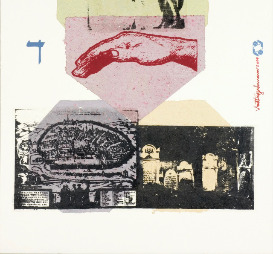Troubadourism and Contemporaneity: A Medieval Literary Expression in the Popular Songs of The Sephardic Jews
DOI:
https://doi.org/10.17851/1982-3053.12.22.80-97Keywords:
Oral Literature, Troubadourism, The Sephardim JewsAbstract
The adjective “sephardic” concerns the jews that came from Spain and Portugal, evicted from their homelands, respectively, in 1492 and 1496. During the time of the persecutions of the Holy Inquisition, the destination of these evicted Jews has varied widely: North of Africa, Italy, Holand, South of France and the Ottoman Empire. As a result, this sephardic Jews community has brought with them a tradition represented by their language, the Judeo-Spanish dialect, with a strong iberian component, initiated sixteen centuries ago, as musical and literary expressions, passed down from generation to generation. In this sense, the present essay aims to identify, in the sephardic folk songs, elements of a literary tradition quite troubadour-like. For this purpose, the subject of this paper analysis consists of songs, consecrated in the voices of singers, among them, Yehoram Gaon, Fortuna and Yasmin Levy. It has been concluded that, due to the isolation of these Jewish communities in comparison to those of the Iberian Peninsula, the Sephardic oral texts maintain a strong medieval literary and philosophical conservatism. Among the consulted bibliographies, Scliar-Cabral (1990), Moisés (1970, 1972) and Saraiva e Lopes (1989) stand out.
Downloads
References
ATTIAS, M. Sobre la poesia popular judeo-española. In: ______. HASSÁN, Iacob M. (Org.). Actas del I Simposio de Estudios Sefardies. Madrid: Instituto Arias Montano, 1970. p. 295-305.
ELAZAR, D. I. Sefaradim y ashkenazim: la tradición clásica y romântica del judaísmo. Caracas: Escudo, v. 2, n. 68, p. 48-57, jul.-set. 1988.
KOEN-SARANO, M. Adio kerida, Julie. Aki Yerushalayim: revista kulturala djudeo-espanyola, Jerusalém, v. 15, n. 50, p. 48-49, jan. 1994.
LACAVE, J. L. Sefarad, Sefarad: la España judía. Barcelone: Lunwerg, 1987.
MACEDO, J. R. A mulher na Idade Média. São Paulo: Contexto, 2002.
MENÉNDEZ PIDAL, R. Romancero hispânico: hispano-portugués, americano y sefardí. Madrid: Espasa-Calpe, 1968.
MENENDEZ PELAYO, M. Estudios y discursos de crítica histórica y literária: v. I. Madrid: Consejo Superior de Investigaciones Científicas, 1941.
MERINO, José María. Leyendas españolas de todos los tiempos: Una memoria soñada. Madrid: Siruela, 2010.
MILLAS-VALLICROSA, J. M. Literatura hebraicoespañola. Barcelona: Labor, 1968.
MOISÉS, Massaud. A literatura portuguesa. São Paulo: Cultrix, 1970.
MOISÉS, Massaud. A literatura portuguesa através dos textos. São Paulo: Cultrix, 1972.
SARAIVA, A. J.; LOPES, O. História da literatura portuguesa. Porto: Porto Editora, 1989.
SCLIAR-CABRAL, L. Romances e canções sefarditas: séculos XV ao XX. São Paulo: Massao Ohno Editor, 1990.
SURRALLES, Carmen Garcia. La doncella que fue a la guerra: romance y conto. Tavira, Cádiz, n. 6, p. 5-24, 1989.
WEINER, J. Judías y cristianos en el Brasil restituido (1625) de Lope de Vega. Proceedings of the World Congress of Jewish Studies, Jerusalém, v. 12, n. 4, p. 159-166, 1985.
Downloads
Published
How to Cite
Issue
Section
License
Os direitos autorais pertencem exclusivamente aos autores. Os direitos de licenciamento utilizados pelo periódico é a licença Creative Commons Attribution 4.0 (CC BY 4.0): são permitidos o compartilhamento (cópia e distribuição do material em qualquer meio ou formato) e adaptação (remix, transformação e criação de material a partir do conteúdo assim licenciado para quaisquer fins, inclusive comerciais.






